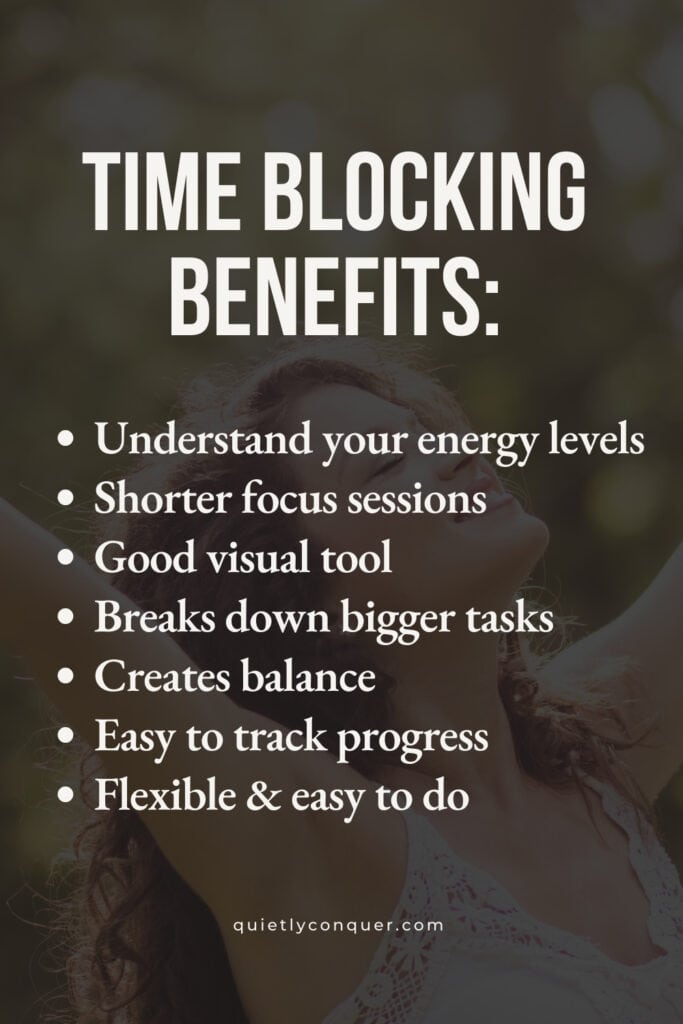Overcoming Perfectionism: Managing Expectations as a Coach, Therapist or Entrepreneur

Perfectionism
In this post we explore how you can finally say goodbye to perfectionism, increase your confidence, and become more comfortable with uncertainty.
If you’re a coach, therapist, entrepreneur trying to find your way in the busy online world, my guess is you’ve experienced some self-doubt, or confusion about how you should be doing things in order to stand out.
The competition is tough out there, and the sheer number of others ‘out there' can increase pressure, and to feel like you have to show up and do everything you possibly can to become successful.
Social media has always been a place that can kick off insecurities and self-doubt. It’s human nature to compare yourself to others, and for many, the comparisons are rarely in your favour.
This constant comparison can create a strong desire to create the perfect post, the perfect programme or product, and to show up looking perfect and full of confidence and authority.
If perfectionism is something you’ve experienced before, it’s likely that in this scenario, your confidence and self belief will be impacted along the way.
I'm excited to share some simple things that you can take on board to help you let go of perfectionism and self-doubt, and increase your confidence and productivity.
*Affiliate Disclosure: Some links in this post may contain affiliate links. If you purchase something via the link, I may receive a small commission. This doesn't affect the price you pay.
If you have any questions, reach out for a chat [email protected] or check out my other blogs
Table of Contents
What is Perfectionism?
Definition:
“the fact of liking to do things perfectly and not being satisfied with anything less”
Oxford Advanced Learner's Dictionary
I also found a great explanation of perfectionism in an article by Berkeley Wellbeing. In the article it explains two different aspects of perfectionism:
Perfectionist Striving – The need for exceptionally high standards, and for things to be flawless.
Perfectionist Concerns – Being critical of yourself, based upon those high and unrealistic standards.
Perfectionist striving, when linked with a mindset of possibility for success, can lead to improved levels of performance. However, when it’s mixed with a fear of failure, because you become worried that you won’t achieve those standards; it can make you feel stressed out and full of self-doubt.
You can become stuck in the loop of needing things to be perfect in everything you do. While at the same time, being highly critical of yourself for not living up to those impossibly high standards.
What Causes Perfectionism?
The root cause of perfectionism tends to be based around a fear of failure, shame, feeling unworthy, or unrealistically high standards.
If you live with mental health conditions like anxiety, perfectionism can be common. It’s linked to a fear of doing something wrong, being judged by others or excessively worrying about what could happen if you made a mistake, or you didn’t meet the expectations you believe others have of you.
If you have low-confidence and low self-worth, perfectionism can be triggered by thoughts of not being good enough. To avoid being judged it becomes much easier to not complete something, or not show up.
Perfectionism can develop as a child whose parents place unrealistic expectations on their children. Or, who are overly critical when their child doesn’t meet their own standards. Whatever the cause, awareness is key, and the first step in making positive change.
Common Perfectionist Behaviours
Thinking distortions:
- Fear of failure
- Very high and unrealistic expectations of themselves
- Over-critical of self and others based upon these expectations
- Not feeling good enough
- Basing value and self worth on performance
- Fear of making a mistake, no matter how small
- Fear of judgement of others
- Difficult to bounce back after any sort of perceived failings
- Excessive worrying about whether it’s right
- All or nothing thinking: “if I fail this I will never achieve anything in life”.
Behaviours –
- Procrastinating: avoiding work / showing up
- Not completing projects to avoid judgement
- Over checking things
- Excessive fact checking
- DIsturbed sleep due to worry
It can look different for everyone. A student I supported for around 4 years, initially had an extraordinarily high level of perfectionism. When it came to submitting work for assessment, they simply could not do it. At times they couldn't even begin the work, other times they completed but couldn't physically hand it over, despite being extremely capable.
They had to repeat their first year. But, once their anxiety was better managed, they were able to recognise when something was done to a ‘good enough’ level. Their high results reflected this, and they were able to see the discrepancy between their ultra-high expectations v what was actually expected of them.
How To Overcome Perfectionism
1. Mindset
The most obvious one to begin with is to focus on inner work. Creating a mindset of acceptance, compassion, self belief and growth is key.
This may mean seeking support from a therapist or mentor to help you work through some of the reasons why you are a perfectionist. I’m not saying this is the case for every perfectionist, but if there is significant distress, stress or worry, then seeking support may be the best course of action.
When you can identify the root cause, you can begin to unpick those beliefs and work on improving your self belief and self worth.
If fear of failure or of being judged are the main causes of perfectionism, learn to embrace a mindset of growth and learning without judgement. Understand that we are all beginners when we first start something – and that’s okay! Learning to give yourself and others grace, and to recognise that it’s not the end of the world if things aren’t “just – so”.
Learning to tolerate feeling discomfort is a great way to work through these fears. Discomfort and disappointment are two of the feelings that many of us will try to avoid. Becoming okay with things not always being exactly how you picture them to be, will be so freeing.
There are lots of self help tools and resources available if you don’t want to seek help from a therapist or mentor. I have a free thought shifting worksheet that you can download to help you challenge those unhelpful thoughts.
2. Set Realistic Goals.
If you know that your perfectionism means that you often make huge and often unrealistic goals, or goals that put you under unnecessary pressure; change them!
People worry that this means they won’t achieve their big goals if they “downgrade” them. But that’s not it at all!
Have those big goals – Do DREAM BIG!! But, when it comes to creating an action plan to make those dreams your reality – be realistic. There are lots of ways you can do this. I have a free planning worksheet you can download to help you break your goals down.
The secret is to take that big dream, then create a goal. Be specific. Vague goals are unhelpful.
For example, “I want to be an author”. This is your dream, now it's time to set a goal. “I will write a book”. Write this down, then think about what you need to do to get to this end goal. What steps are there? What do you need to do?
From there, create milestones, for example: “I will outline all of the chapters to identify the topics I will cover” Keep breaking them down until each steps is achievable. This gives you a roadmap of everyhting you need to do in order to have that book published.
Clear and achievable (smaller) goals reduce the risk of perfectionism as it removes the overwhelm when you sit down to begin. Instead of looking at the whole mountain, you're looking at smaller, achievable and less daunting steps, which builds your confidence as you move along.
Take Action to Grow Confidence
Perfectionism can make starting difficult. It's far easier, and feels much more comfortable to avoid, and put it off – even if it’s something you really want to do. Avoiding it altogether will remove the feeling of discomfort.
But when you give yourself permission to be a beginner, to mess things up, or get things wrong without shame, you will release the fear that's keeping you frozen.
You’re not going to be perfect at anything the first time you do it, you need to learn and develop your skills. If you can do this with a mindset of “let's give it a go, no judgement here!”, and be open to lessons, and flexible with your approach, perfectionism will be massively reduced.
Become more reflective, and allow yourself to be vulnerable. When you show yourself grace and compassion, you will learn so much. Get used to asking for feedback from others so that you can continually develop and improve your skills and your confidence.
Ask for feedback when you're stuck or feeling uncertain. When feedback is done right, it's a brilliant way to support your learning and development. It's incredibly valuable, so getting comfortable with not always getting it ‘right' is essential.
See setbacks as learning points. If you’re a perfectionist, setbacks can be highly triggering. The all-or-nothing thinking may try to convince you it's a failure and you may as well quit… Instead, accept that things happen, and take challenges or uncertainty as lessons that will help you move towards your true goal.
Imperfect Action
Try to not wait until everything is lined up before you make a start. Go into things with the attitude of “I am aiming for good enough. I can improve it once I’ve finished this draft”.
It's a good idea to make sure you have some boundaries in place for this though. Limit yourself to around 20 minutes to make any changes. Only allow yourself 2 or 3 edits, and then step away and let it go.
Once you become okay with making mistakes and accepting where you are in relation to your knowledge and skills, imperfect action becomes easier. The solution to feeling stuck and perfectionism is always in taking action.
Prompts & Affirmations:
Below are a collection of prompts and affirmations to help you journal around perfectionism, and think about what you can do to improve your confidence and belief in yourself.
Prompts:
1. Reflect on a time when perfectionism has held you back from taking action. What did you learn from it?
2. What perfectionist behaviours do you notice in yourself? How do they impact your productivity and well-being?
3. Describe a situation where you felt overwhelmed by unrealistic expectations. How could you reframe them to be more realistic?
4. What self-care practices can you introduce into your daily routine to help you cultivate more self-compassion?
5. Think about a recent setback or failure. What lessons did you learn, and how can you use them to grow?
6. What opportunities would open up for you if you weren’t held back by perfectionism?
7. How would you feel differently about yourself and your abilities if perfectionism wasn’t a thing for you?
8. Reflect on the fear that drives your perfectionism. What can you take to overcome your fears?
9. Think about a recent accomplishment. What strengths and skills did you demonstrate in achieving this goal?
10. Consider the expectations others have of you. Are they realistic and fair, or do they reflect your perfectionist tendencies?
11. Consider the language you use to talk to yourself. Is it supportive and encouraging, or critical and judgmental? How can you change this to a more positive dialogue?
12. Reflect on a time when you received feedback or criticism. How did you feel and how did you respond? Is there anything you could do differently next time to be more open and receptive?
13. Consider the impact of comparison on your self-esteem and confidence. How can you shift your focus from comparison to self-acceptance and appreciation?
14. Imagine giving yourself permission to be imperfect. What would change in your life if you embraced this and didn’t worry about what others may or may not think?
15. Consider the idea of striving for “good enough” instead of aiming for perfection. How can you continue to strive for high value and success, without falling into the perfectionism trap?
Affirmations:
1. I am worthy of love and acceptance just as I am.
2. I release the need to control every outcome.
3. I am resilient and capable of overcoming setbacks with grace and courage.
4. I choose compassion and kindness to myself and others.
5. I celebrate my progress, no matter how small.
6. I let go of comparison and focus on my unique self and embrace my strengths.
7. I am enough just as I am.
8. I release the need for perfection and embrace authenticity and vulnerability.
9. I choose to focus on progress over perfection.
10. I allow myself to learn and grow through trial and error.
11. I am grateful for the lessons that challenges and failures teach me. I approach them with curiosity and openness.
12. I trust in my ability to adapt and grow when faced with change and uncertainty.
13. I let go of the need for external validation and find validation within myself.
14. I am resilient and capable of overcoming obstacles that may come my way.
15. I am enough, just as I am. My worth is not based on my achievements.
Tools, Resources & Support
Take a look at these tools & resources that will help you with your seasonal goals and personal growth:
Cognitive Distortions Worksheet – Support emotional clarity and build self-awareness with this printable CBT thought distortions worksheet. It's designed to help you (or your clients) challenge negative thinking patterns using practical cognitive behavioural therapy techniques.
Impact Stationery – Have you ever dreamed of creating your own high-end stationery products? Laura has an amazing course & community designed to help you created printed products that you can market on Amazon, or your own website. It's different to KDP in that they're not print on demand, and the quality of products are incredible.
Etsy – Are you ready to create your own online store? Etsy is a brilliant shopping platform that's used by millions. Setting up your store is simple, and when you sign up with this link we both get 40 free listings!
I would love to know what perfectionism looks like for you, and what you’ve been able to do to move past it.
If this post helped or you enjoyed reading it, please share one of the images below as it really helps my blog – Thank You!



Meet Lynsey

Hey there! I'm Lynsey, a counsellor, coach and mentor for women who want to create change, but are feeling lost, uncertain and exhausted. With over 7 years’ experience of training, running businesses, and over a decade as a tutor and adult trainer, I've learned the value of a gentle and intentional approach to work and life that energises you without draining all of your energy.
I've lived with ME/CFS since 2011, and since then re-trained as a counsellor, and achieved a distinction for my Masters in Counselling and Psychotherapy Practice; all while running 4 businesses!
How? Improving your mindset, finding acceptance in yourself, and developing a gentle, but solution-focused approach to achieving goals is key. Knowing that it's not about how fast you move, but finding your own pace and trusting that you can achieve your goals in your own way, one step at a time.
If you'd like to know more about working with me, you can email [email protected] or find me on socials (links in the menu)
Have you seen my online store Quietly Conquer – Find DFY templates, downloads and more!






